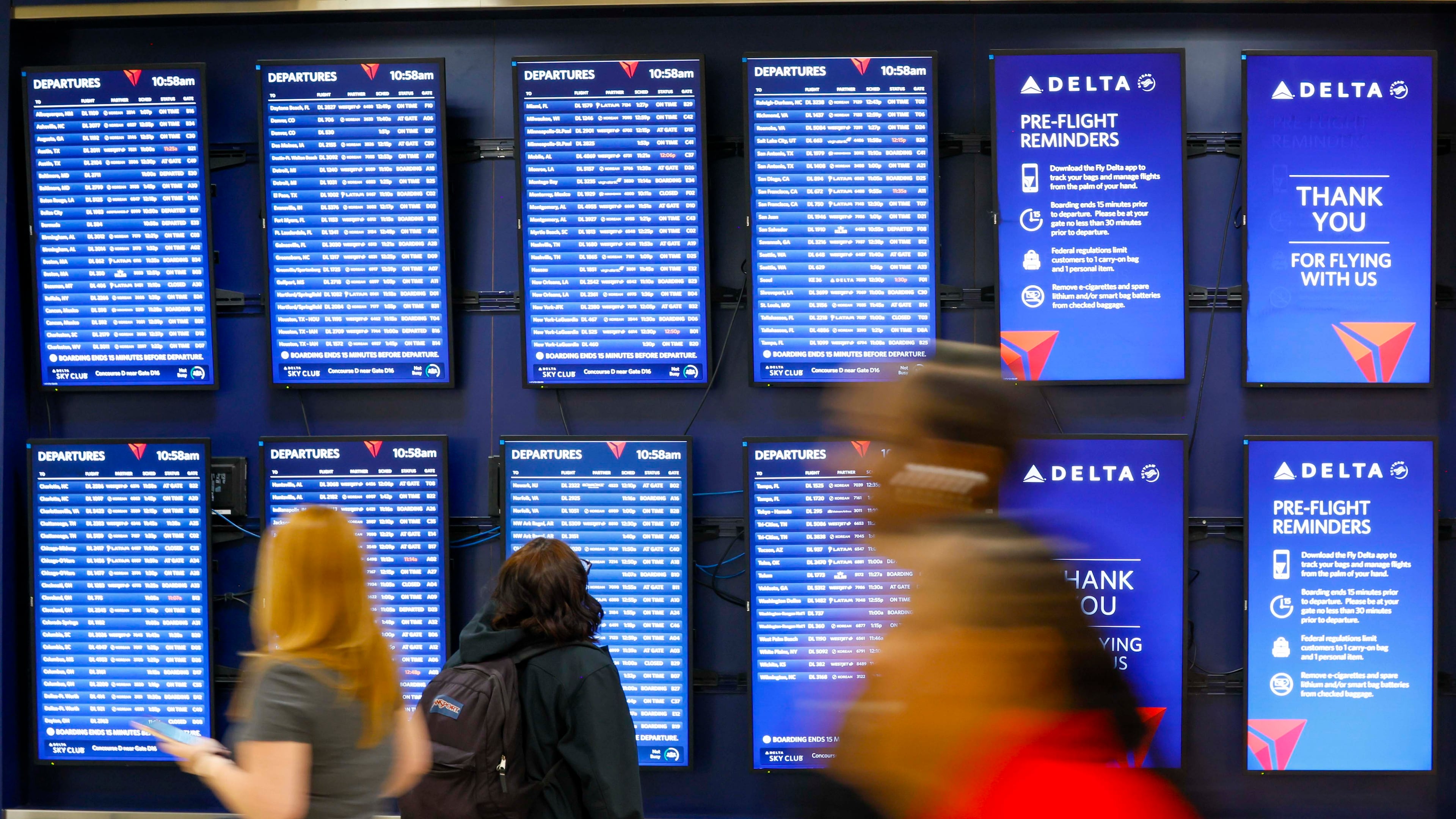Atlanta will lose its soul if it abandons diversity and inclusion commitment

The AJC reported recently that Atlanta may have forfeited tens of millions in federal funds rather than betray its values and decades of success in diversity and equal opportunity.
Roughly $37.5 million for Hartsfield-Jackson Atlanta International Airport may be permanently gone, according to the Federal Aviation Administration. If Atlanta caves in, it will lose more than money. It will lose its soul.
Mayor Andre Dickens says his administration is weighing whether to alter the city’s vaunted minority and female business enterprise program to protect future federal dollars. Yet the stakes go far beyond the airport’s balance sheet.
If Atlanta shutters its MFBE program, the ripple effects would be felt nationwide. To abandon it would cost Atlanta credibility as an incubator of democracy, a drum major for justice and a Black mecca that gave birth to the modern civil rights movement. It would also send the wrong message to private companies like Apple, Delta and Costco, which have publicly affirmed that DEI programs are good for business.
Trump’s anti-DEI edict causes Georgia institutions to cower
Civil rights and equal opportunity are part of the city’s DNA, as deeply ingrained as Coca-Cola or Peachtree Street. This matters because Atlanta’s brand has real value. There are about 13,000 Black-owned businesses in metro Atlanta, second only to New York City.

That brand helped secure the Centennial Olympic Games, host three Super Bowls and win the 2026 FIFA World Cup. It has made Atlanta a magnet for investment, technology and improved race relations. Protecting equal opportunity is not just morally right; it is economically smart.
The city’s MFBE program has survived repeated legal challenges — from the American Subcontractors Association in 1989 to the Southeastern Legal Foundation in 1999. Each time, the city made court-mandated adjustments and kept the program intact.
Now, the Trump administration is attempting to use the Supreme Court’s ruling on affirmative action in higher education (the Harvard and UNC cases) to dismantle diversity programs everywhere, even those with very different legal foundations.
At the same time, Atlanta’s higher education institutions are retreating. Georgia Tech, where I once taught a young Andre Dickens, has already scrubbed the words “diversity,” “equity” and “inclusion” from its websites. Earlier this month, Leah Ward Sears — interim president of Emory University – announced the closure of the university’s DEI offices, suggesting diversity could still be achieved without formal structures. Alumni and community leaders were stunned.
Meanwhile, some institutions with far fewer resources — George Mason University and the University of California system institutions — are fighting back, even in court. They know that giving away your lunch to a bully before he asks only encourages more bullying.
Big Atlanta companies should double down on diversity commitment

This issue is personal for me. On April 6, 1987, Sears — then a municipal court judge and later the first Black chief justice of the Georgia Supreme Court — swore me into office at my first Atlanta City Council meeting. My wife and nine-year-old daughter, Ndelea, were there.
When Sears asked me to raise my right hand, my daughter lifted hers, too. Everyone chuckled, though she later confessed she had never been so embarrassed. That tender moment bonded our families for decades, which makes Emory’s retreat under her leadership especially painful.
Because of Emory’s past commitment to diversity, I earned my doctorate there shortly after turning 27. That degree laid the foundation for much of my professional life, including my service on the Atlanta City Council and later as president of a Georgia technical college. As both an alum and a former council member, I know firsthand how institutions shape opportunity. To cave in now is shortsighted and dangerous.
Unlike Emory, Atlanta cannot afford to retreat. The city’s economic standing, civil rights legacy, and moral authority all depend on defending equal opportunity. That defense requires a coalition of corporations that must double down on their DEI commitments and publicly say so. They should also help fund the city’s legal defense of its MFBE program. If Atlanta’s elite universities stiffen their spines, they could be of tremendous value in helping the city assemble a “dream team” of legal and policy experts to hold the line. Faith leaders must step forward, too. This is not just a political or economic issue — it is a moral one.
As Mayor Dickens often reminds us, progress is a “group project.” Protecting equal opportunity in Atlanta must be exactly that.
Atlanta has always been defined by its willingness to fight for justice, not run from it. At this moment of truth, the city’s leaders, institutions, businesses, and citizens must rise together. The legacy of Rev. Martin Luther King Jr., President Jimmy Carter, Mayor Maynard Jackson and countless others demands nothing less.
Jabari Simama, an Emory University alum and former Atlanta city councilman, writes a bimonthly column on education and government for Governing.

